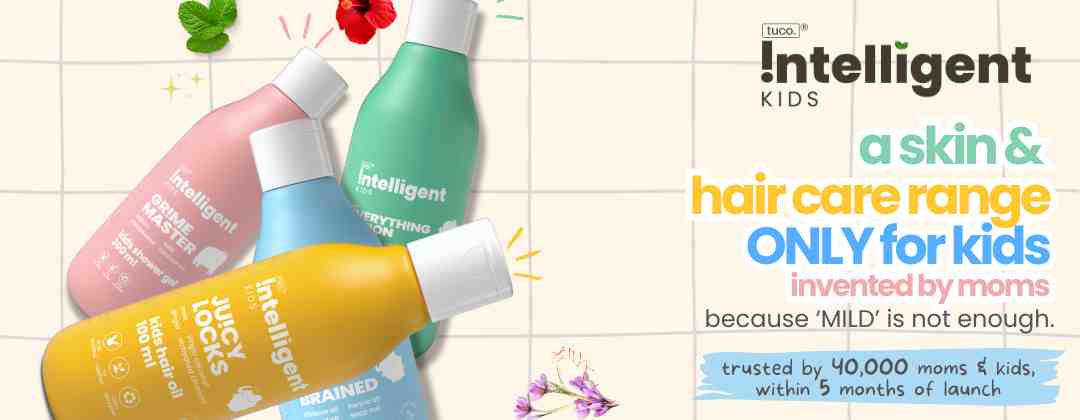Hello healthy scalp! Goodbye Itchiness!
Winters and dandruff are best friends. As much as we enjoy the chill climate, we equally dread the flaky, white stuff on our hair that we find somehow even on our clothes.
There’s no doubt that dandruff becomes worse as soon as the winter sets in. Beware! The cold weather may not be so kind when it comes to our hair, and that is one of the main causes of dandruff.
Many people believe dandruff only occurs due to dry scalp, which is only partially correct. In fact, for many people it is because of excess oil produced by the scalp (both are equally bad!).
But they say where there is a will, there is a way, right? Every problem has a solution and knowing the causes and treatment to cure dandruff is what we’ll be looking at today.
CONTENT INDEX
- Meaning and types of dandruff
- What causes dandruff
- Treatment for dandruff
- Hairtelligent® recommendations for dandruff
But, first let us see what dandruff actually means.
Dandruff: Causing all the ruffness in your scalp
In layman terms, dandruff is the white scaly patch that we see on our hair. In technical terms, it is referred to as a skin condition which is a non-inflammatory form of dermatitis, with increased scalp scaling.
It basically occurs when dead skin cells that are piled up flake off on your shoulder or dress from the scalp. Although dandruff flakes may look alike, there are different types of scalp conditions. Some of them include:
Dry skin dandruff - it is the most common type, which occurs more in winters due to the dry climate. Indoor heating can dry out your skin and so can frequent hair washing with hot water. They are small, white in nature and cause itchiness.
Oily skin dandruff - Excess production of sebum, a type of oil that is used to moisturize the skin, can make your scalp oily. Many people have this misconception that dandruff is only caused by dry scalp and that applying oil is the only treatment. In fact, it is quite the opposite in this case! Oily skin dandruff is generally larger and yellowish in color due to the oil.
Fungus-related dandruff - A common type of fungus found under the skin called Malassezia can trigger an inflammatory response such as dandruff or other skin-related problems such as eczema. Using a Malassezia inhibiting shampoo can cure this condition.
Now that we have looked at the possible types of dandruff, we will see what can be the causes of this problem.
Causes Of Dandruff: Who are the bad guys?
Dandruff may have several causes and differ from person to person. The most common causes are:
- Irritated and oily skin
- Lack of hygiene and not shampooing enough — this causes skin cells to accumulate and create flakes and itching
- A reaction of our immune system to a type of yeast called Malassezia globosa that lives on the skin
- Hormonal issues may also be a reason, because dandruff is most found after puberty in young adults
- Sensitivity to hair care products (contact dermatitis)
- Other skin conditions, such as psoriasis and eczema
There may be more than one cause for dandruff, but some simple steps can help get rid of dandruff in no time.
Ways To Get Rid Of Dandruff: Just 7 Easy Steps
Dandruff in winter can be let at bay by following some simple tricks..
Avoid heat
Heat creates the breeding ground for dryness, which in turn, helps in the formation of dandruff. So keeping a control on the amount of exposure to heat is essential for avoiding dandruff.
As much as we prefer to blow dry our hair right after a shower to not catch a cold (especially during winter), it is important to know how these hair dryers can induce excess heat on the hair. So, in trying to protect our body, we compromise our hair health. A good alternative to this is towel drying your hair, and using heating equipment only when necessary.
Quench your body’s thirst
Water is the ultimate medicine to all skin- and hair-related problems. The importance of having water cannot be stressed enough. Hydration to your body is directly connected to your hair health. It is the best way to get rid of dandruff.
Why is water so special? Well, it retains moisture, hydrates your hair, and does not encourage dandruff. Lack of water causes dehydration, making your hair more prone to dandruff. Make it a habit to drink at least 3-4 liters of water everyday.
Diet is the key
If you feel your diet and food choices may be a reason to contribute to dandruff, then changing to a healthier diet might just be the solution. A big ‘no’ to oily, fried items, fast food, carbonated drinks, and fatty substances is a good stand to take (basically, anything with excess salt or sugar is bad).
Try switching over to fruits and veggies for your evening snack. Excellent nutrients for the hair include Vitamin B, Zinc and Omega 3. These can be found in bananas, fish, spinach, and salads.
Sugar is your enemy
As mentioned earlier, sugar is the hidden devil for causing dandruff! As sweet as it tastes, it is equally dangerous for our body — both hair and skin. Excess oily flakes you see on the scalp are mainly produced due to increase in sugar levels.
Replace your sugar with honey, jaggery and other healthier alternatives.
Choose the right towels
Cotton towels are the best option for drying your wet hair. 100% cotton is preferred as they are usually soft in texture and won’t harm the hair. Other towels that are commonly available in the market may not be very friendly and cause friction to the hair strands due to its rough texture. This may, in turn, lead to dandruff.
Tea tree oil
It is one of the lesser known ways of getting rid of dandruff, but trust me, this is very effective. It moisturizes your scalp, and has good anti-microbial properties. This prevents dryness and infection, and thus dandruff. Beware, tree oil should be diluted and used in limited quantities.
Take help from a dermatologist
In case these at home tips do not work, seek help from a certified dermatologist and check whether you have an underlying skin condition such as eczema or psoriasis — for which there are strong medications.
Apart from these hacks, keeping your body physically and mentally healthy is very important to keep your dandruff at bay! There are some products that can hasten the process of removing dandruff from your hair, such as the hair care range from Unbottle.Co that gives hairtelligent® solutions to various hair care problems.
Anti-Dandruff Shampoo Tuco Hairtelligent® Proven To Fight® Dandruff
Hi! I’m Tuco Hairtelligent® 's proven anti-dandruff shampoo. Why Hairtelligent®? Because I have 4 super botanicals inside me - 2 to treat dandruff, 2 to prevent recurrence. My packaging is made from 100% recycled plastic. For every bottle you buy, you remove 17 gms of plastic from the ocean! I nourish your hair, and contain no harsh chemicals. And I am completely sulfate-, paraben- and phthalate-free.
Tuco Hairtelligent® Anti-Dandruff Conditioner proven to fight dandruff
I fight dandruff and make your hair stronger. I do not contain harsh chemicals. I am sulfate-, paraben-, and phthalate-free.
To Treat:
- Activated charcoal aids scalp health
- Wheat gram arrests dandruff.
To prevent recurrence:
- Keratin makes hair stronger
- Jojoba oil boosts hair volume
Tuco Hairtelligent® Anti-Dandruff Hair Oil with Activated Charcoal & Pea Protein 0% toxins
I fight against dandruff and I don't contain harsh chemicals. I am also sulfate-, paraben- and phthalate free!
To treat:
- Mint adds scalp freshness
- Ginger has antimicrobial and antifungal properties
To prevent recurrence:
- Activated charcoal aids in scalp health
- Virgin coconut oil smoothes the hair.


